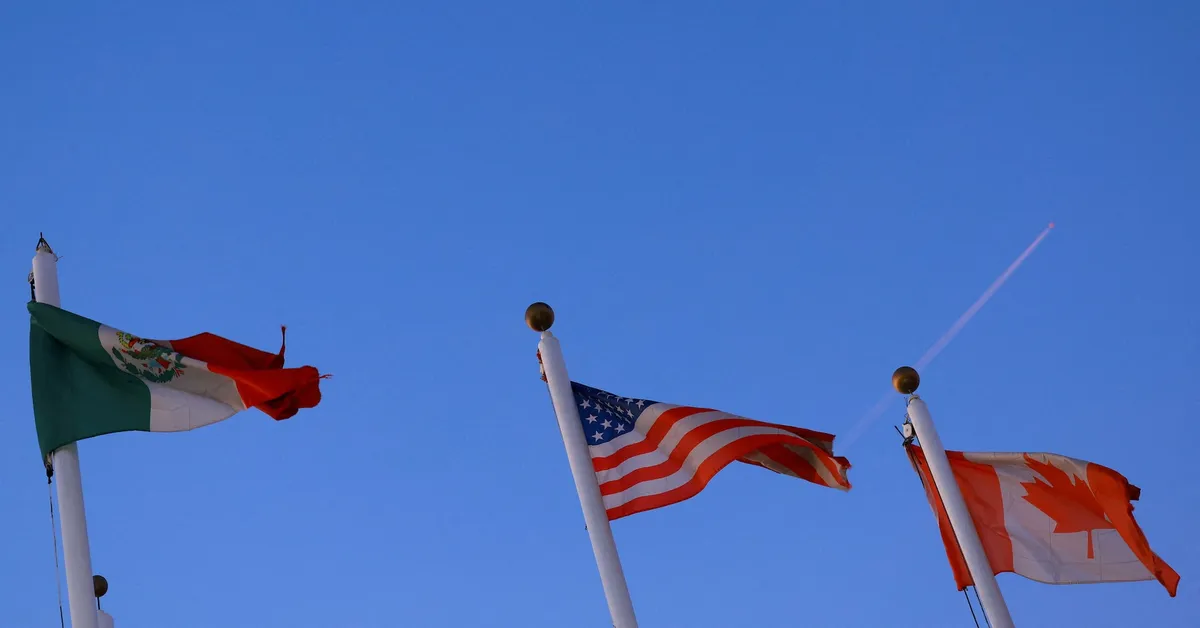
On March 3, 2023, U.S. President Donald Trump is poised to announce critical tariff levels on imports from Canada and Mexico during a decisive meeting on Monday. The announcement follows intense negotiations surrounding border security and efforts to combat the influx of fentanyl opioids into the United States, as stated by Commerce Secretary Howard Lutnick.
President Trump has previously indicated a willingness to impose a substantial 25% tariff on all imports from Canada and Mexico, with specific tariffs of 10% on Canadian energy products. This trade action could significantly affect the highly integrated North American economy, impacting over $900 billion worth of annual U.S. imports from its neighboring countries.
However, Secretary Lutnick hinted on Sunday that the president might opt for a more moderate approach, emphasizing that the tariff situation remains fluid. "The president will assess the progress made by Canada and Mexico in addressing illegal immigration and fentanyl trafficking," Lutnick noted during an interview with CNN.
During the discussions, Lutnick praised the efforts of both Canada and Mexico in managing their borders, but stressed the need for further action to curb the flow of fentanyl into the U.S., which has been a major contributor to the opioid crisis. "The president is committed to saving American lives," he stated, highlighting the ongoing challenges posed by drug cartels in the region.
As part of the tariff discussions, Trump is expected to raise existing fentanyl-related tariffs on Chinese imports from 10% to 20%, unless China takes significant steps to halt fentanyl trafficking into the U.S. These tariffs could impact approximately $439 billion worth of annual imports from China.
In response to the looming tariffs, Mexico has been proactive in ramping up its anti-drug efforts. President Claudia Sheinbaum indicated that her government is prepared to respond to any tariff measures imposed by Trump, asserting, "We have a plan B, C, D," although she refrained from disclosing specific details. She emphasized the importance of ongoing coordination with the U.S. regarding trade and fentanyl trafficking.
According to the Centers for Disease Control and Prevention, a staggering 72,776 people died from synthetic opioids, primarily fentanyl, in the U.S. in 2023, underscoring the urgency of the situation.
White House trade advisor Peter Navarro expressed confidence in Trump's tariff agenda, stating that he does not foresee any wavering from the president. He argued that the inflationary impact of these tariffs would be minimal, reinforcing that the trajectory set by Trump aims to strengthen the American economy and create jobs.
In a series of recent trade actions, Trump has initiated a national security investigation into imports of lumber and wood products, which could lead to steep tariffs, particularly affecting Canada, already facing a 14.5% tariff on softwood lumber. Additionally, Trump has launched investigations into other areas, including tariffs on countries imposing digital services taxes and proposed fees on Chinese vessels entering U.S. ports.
In another recent move, Trump suspended the de minimis exclusion for low-value Chinese packages. However, the U.S. Customs and Border Protection Agency had to pause this suspension due to the overwhelming backlog of packages at U.S. airports. Fentanyl traffickers have exploited this loophole, leading to increased scrutiny of packages entering the country.
As the situation evolves, all eyes will be on Trump's tariff decisions and their potential repercussions for trade relations and the fight against opioid trafficking in North America.